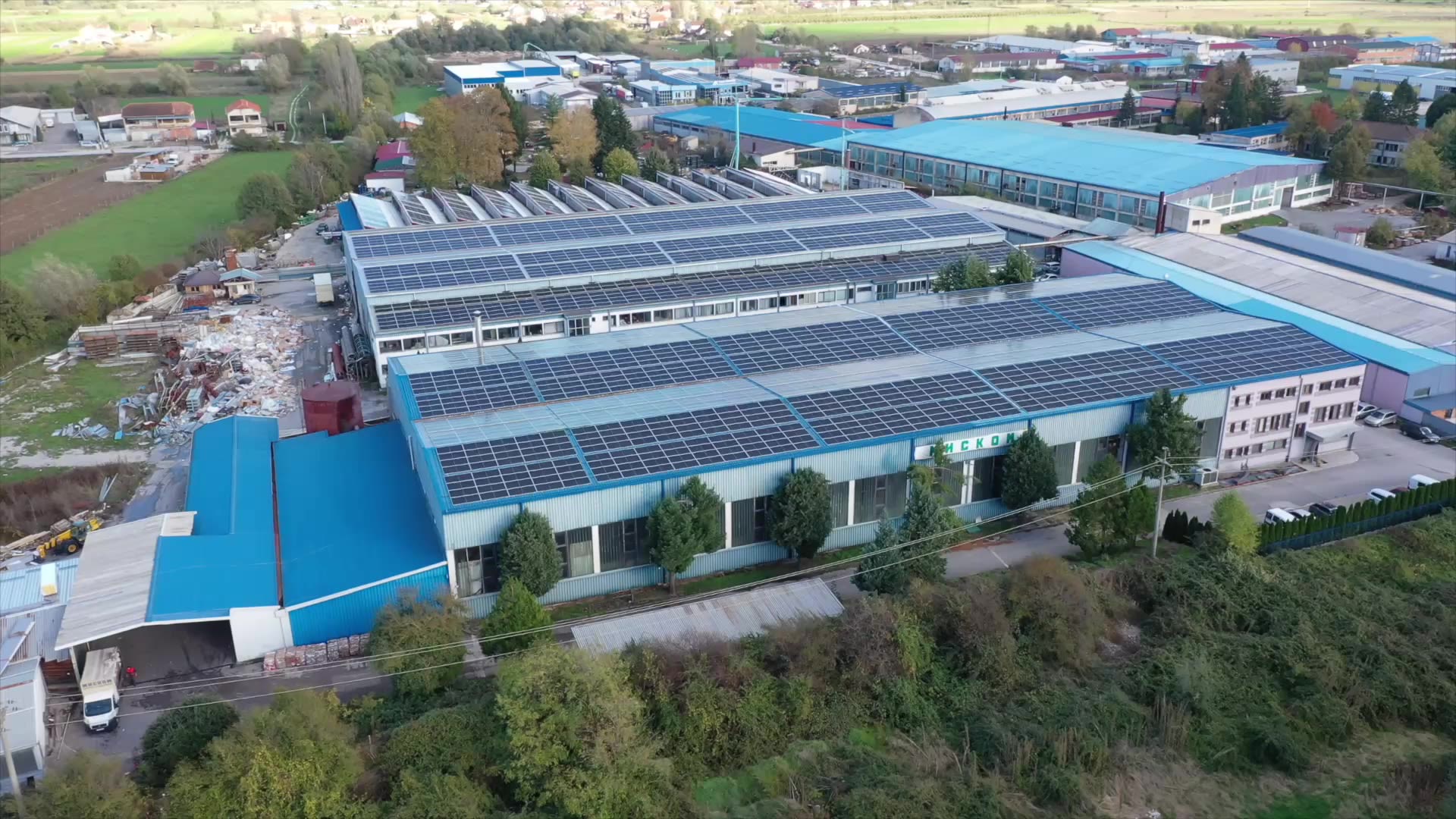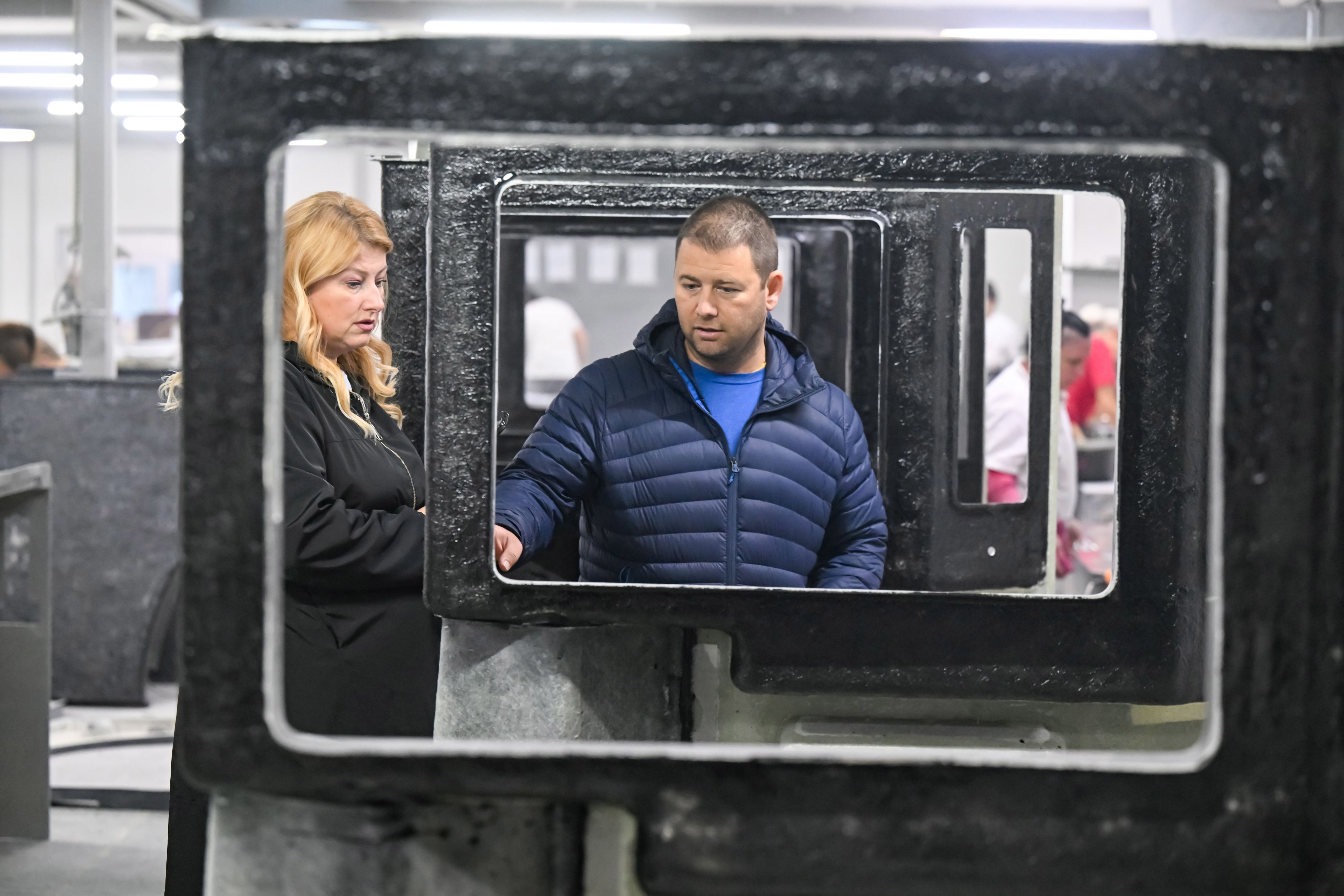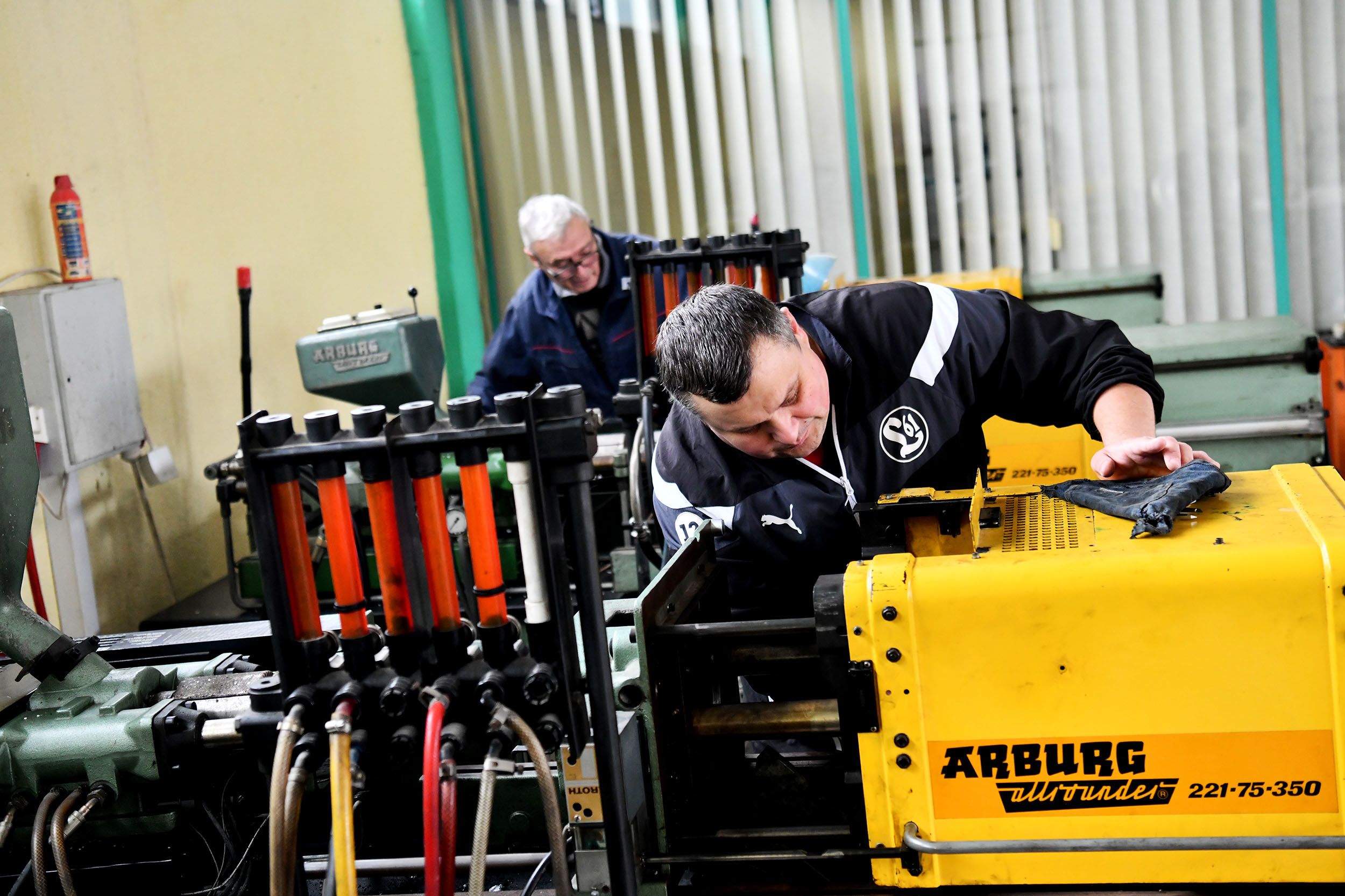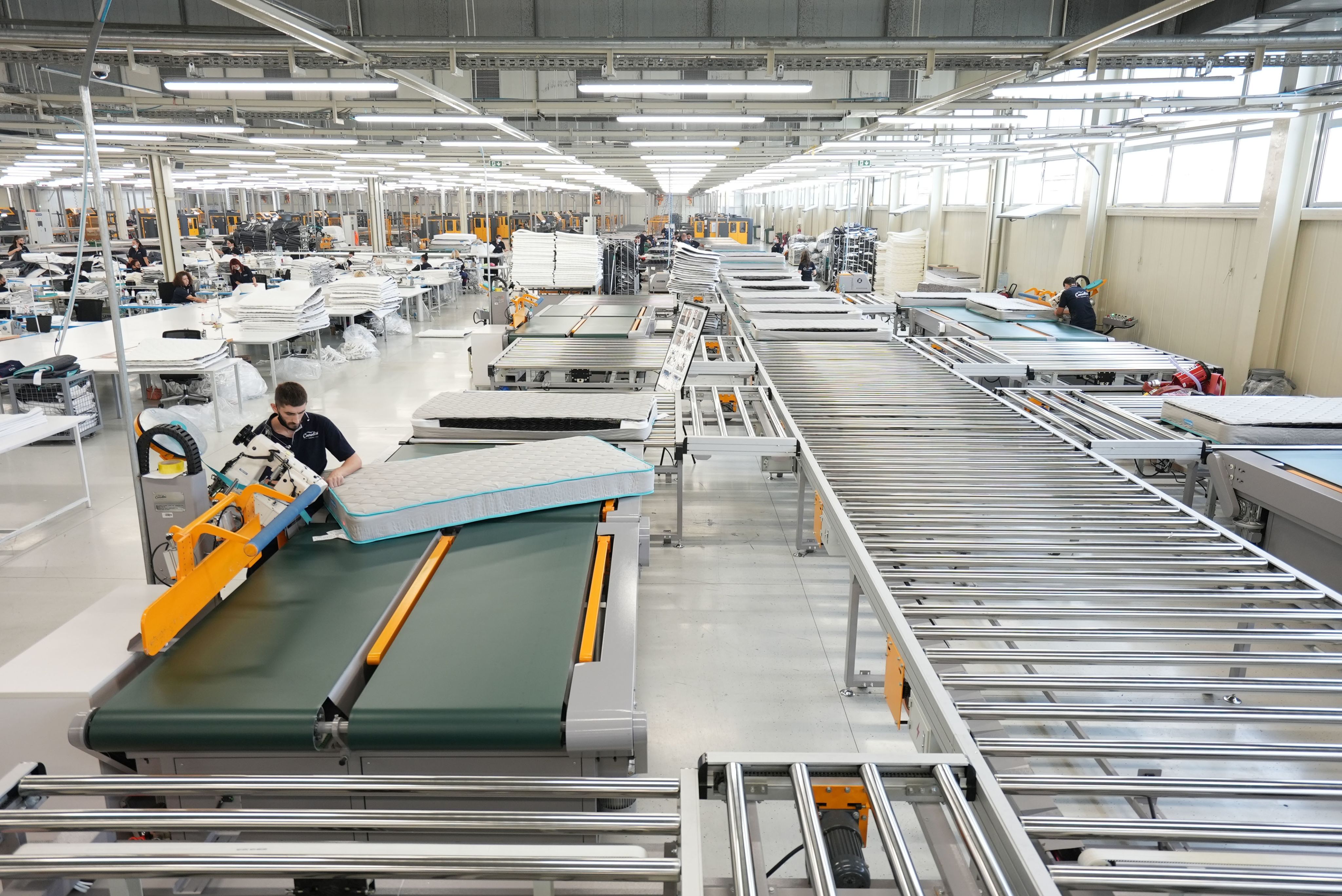Manufacturing New Opportunities in the Western Balkans
An IFC project is providing training, skills, and networking opportunities to manufacturing firms in the region to create jobs and new opportunities.

Behind every product or service is a value chain—the many steps a company goes through to create and add value, from the initial idea and design, right through to manufacture, sales, and delivery. Streamlining this process, and taking advantage of regional and global value chains, is essential to help companies reduce costs and boost their efficiency.
This can be a difficult process for businesses in emerging markets, however. In the Western Balkans, for example, many manufacturing firms lack the capacity and skills they need to boost their production and forge connections globally—despite advantages such as a competitive cost structure, favorable regulatory regime, and their proximity to the European Union market.
Because the majority are smaller businesses, they also struggle to compete with the mass-market volumes produced by rival exporters in Türkiye and Central Europe.
IFC’s Western Balkans Manufacturing Value Chains program, a four-year program that began in 2021, was set up to tackle this problem. The advisory program, implemented in partnership with the Swiss State Secretariat for Economic Affairs SECO, aims to support the region’s smaller manufacturing businesses especially with advice, training, and networking opportunities.
“The program was designed to create new opportunities for firms and help speed up the recovery from the pandemic,” says Nicolas Marquier, IFC’s Regional Manager for the Western Balkans. “By improving their production processes and connecting these businesses with global and regional value chains, we can improve their competitiveness, enabling them to grow and create jobs.”
Here are three success stories from the program so far:
Optimizing production at Uniplast
Uniplast, in the city of Struga in North Macedonia, started as a small family company nearly 40 years ago with an improvised workshop in the family home. Today, it is a leading manufacturer of fiberglass products in the Western Balkans.
The company manufactures and supplies fiberglass bus parts to Van Hool, a Belgian bus producer with a factory in North Macedonia, and produces boats for the Dutch and Italian markets, as well as manholes, industrial tanks, and swimming pools.
Meeting increasing demand for its products has proved challenging, however. The company’s production facility was small, the production process not optimized, its flow of produced and semi-produced components often improvised, and—with just 50 employees—there just weren’t enough staff.
“We had the quality and standards, but we always got stuck in the production process,” says Hristijan Kovaceski, Uniplast Co-owner and Marketing Director.
This is when Uniplast decided to join IFC’s Western Balkans Manufacturing Value Chains program. Following a thorough review of the business, IFC’s team outlined a three-part plan to help boost the company’s growth: define and deploy a strategy for future success; prepare processes for long-term customer requirements; and optimize manufacturing capability.
As part of that plan, IFC has since supported the company in updating its vision and mission, developing a new business plan and policies, training its leadership, reorganizing its workplace, streamlining its production processes, and understanding key regulatory requirements, among other steps.
Following IFC’s advice, Uniplast also invested €400,000 in new equipment and the construction of a new production facility, which is due to be finished this year. It now plans to employ another 80 or more staff to meet increased demand.
“With the help of IFC, we’re in the middle of restructuring the entire production process, including doubling the size of the new production floor and building an annex, so we can deliver products for both the bus and marine industries,” says Kovaceski.
IFC’s digital matchmaking platform, a part of the program that matches companies with prospective regional and global buyers, has also generated new leads for the company in the United Kingdom. And its growing success has made buyers from other industries, such as the railways, knock at its doors.
“The most important thing is that we are now confident we can meet our targets,” says Kovaceski.

Driving change in Serbia
Spon, a small family business and producer of plastic products in Paracin in Serbia, found itself struggling after the COVID-19 pandemic, when a number of its clients were forced to close. That created a challenge—either close the business or find new production and supply opportunities.
Spon founder Ljubisa Stamenkovic decided to look for new partnerships. Fortunately for him, that coincided with several large automotive and component companies opening new facilities in Serbia.
In 2022, Spon was approached by ZF, Bosch, and Brose, all leading automotive suppliers, with a request to supply small, standardized parts for car seats as well as standardized pins. While the first orders of 20,000 to 30,000 items were produced successfully, the industry’s strict regulations needed to be adequately supported and documented—something the smaller business found challenging.
Spon also faces heavy competition. Serbia’s automotive industry is one of its most prominent sectors, accounting for almost 10 percent of all foreign direct investment since 2001 and creating more than 27,000 jobs. It supplies almost all major European and some Asian car manufacturers and contributes around $2.1 billion to the country’s exports.
This is where IFC stepped in—again conducting a thorough two-stage review of the company to identify key areas for improvement. For Spon, this included the need to enhance its marketing and visibility by creating a website; developing its sales and business team; and better aligning its processes with industry standards to optimize production and boost growth.
In line with this, IFC’s team have helped the company develop its business strategy and improve its policies and processes, including in terms of performance management, stock and inventory management, and corporate and social responsibility. Supporting Spon in obtaining industry standards such as IATF16949, a key global quality management system, is also helping open doors to other large international car makers.
“We’re open to learning and cannot wait to finish the IATF certification process,” says Marko Rakić, Spon’s Business Process Development, Sales & Purchasing Manager. “My dream is to follow the path of successful family businesses like Agnelli, Bosch, Costa, Ferrero, Mars, or Ikea, and one day celebrate our 150th anniversary.”

Dreaming Big in Kosovo
Kosovan company Ventius International started in 1989 as a small mattress manufacturer with a big vision—to “reinvent the sleep experience.” Today, the company is well-known internationally and one of the top three suppliers to the US market. With 2,500 staff, it has also become the biggest employer in the Gjakova region.
According to Vigan Sadiku, the company’s financial controller, its core goal and vision remain incomplete, however. “Our aim is to continue to create new opportunities by designing new products and increasing our production capacities, while expanding in new markets and becoming a global brand,” he says.
Which is why the company decided to join the IFC program. IFC’s team again started with a thorough review. This found that while the company’s growth rates had been extraordinary, they had largely been driven by the efforts of a few highly motivated people rather than process-focused, something that could ultimately hamper growth.
The review also found Ventius had had little opportunity to consolidate its growth or implement the systemic improvements it needed to ensure sustainable growth.
To address this, IFC’s team has since supported Ventius in developing new processes to bolster its growth and boost staff performance and retention. The team has also helped drive daily management and data-driven improvements to optimize production processes, and provided leadership training to ensure managers keep up with new trends and technologies.
In addition, IFC recently delivered training to 40 Ventius employees using the ‘5S’ methodology, an idea that originated in Japan. This focuses on sorting (decluttering), straightening (organizing what remains), shining (cleaning the work area), standardizing, and sustaining to create a more organized productive workspace.
As Armond Morina, a Ventius line production manager says, “It’s often easy to believe that you’re doing your job in the best way, instead of looking at alternatives that could make it better. The training has also helped decrease our stress around little things that can have a negative impact.”
Ventius is optimistic about its future. “We are proud to have been a leading company and contributor to our country's exports for many years. By doing this, we are helping to change the world’s perception of Kosovo,” says Sadiku.
Published in July 2024







